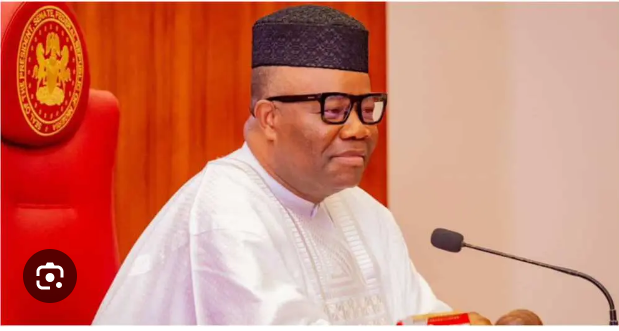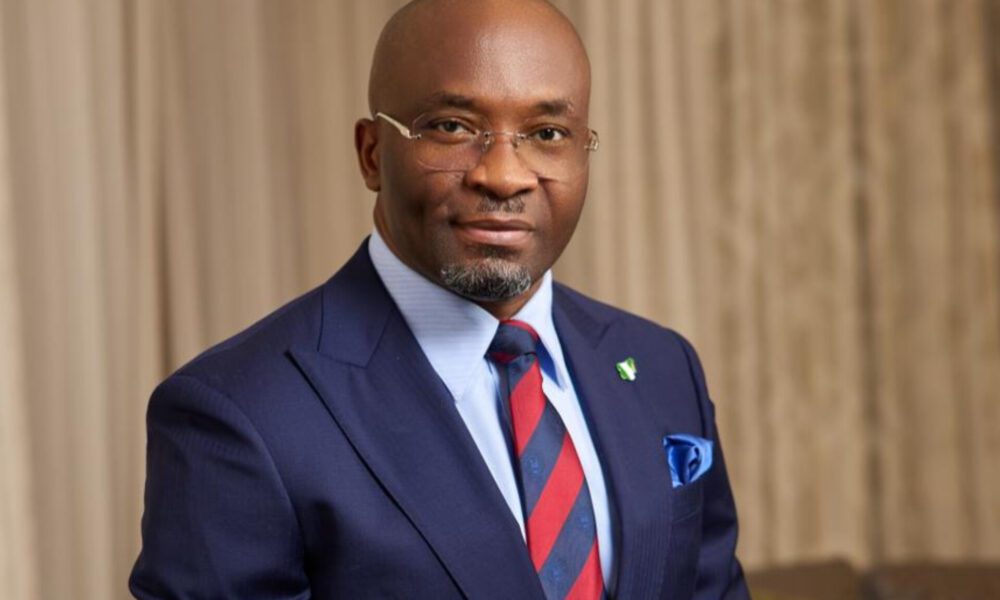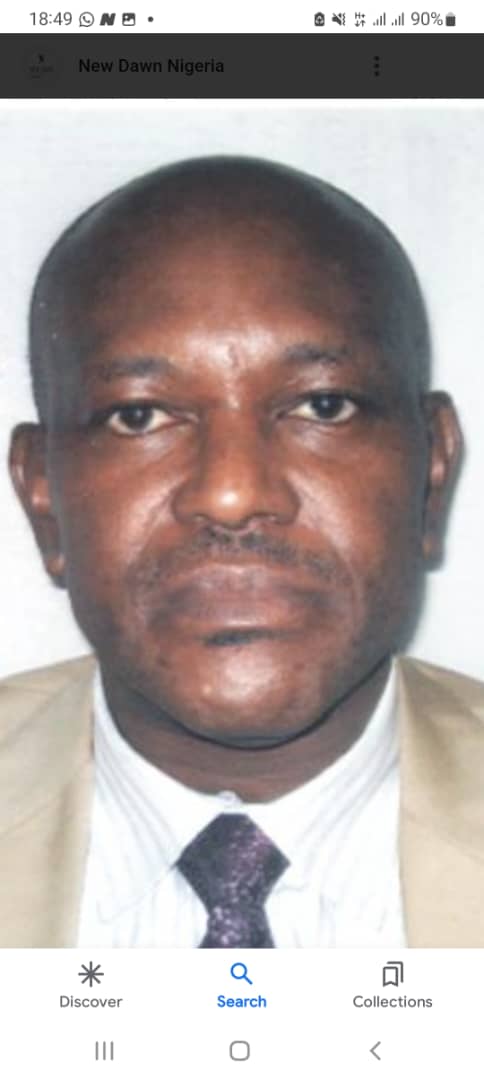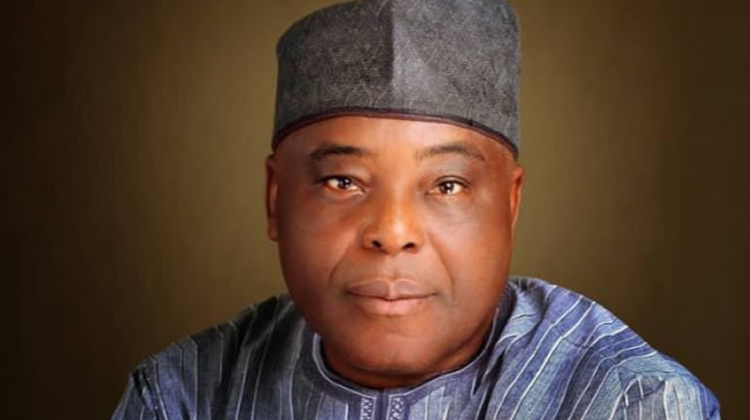By OLA AWONIYI
About a fortnight ago, the Nigerian media widely reported that the House of Representatives Committee on National Security and Intelligence recommended, in a report, that the Federal Government should purchase new aircraft for the use of President Bola Ahmed Tinubu and Vice President Kashim Shettima. The House had in May mandated the Committee to investigate the conditions of the aircraft in the Presidential fleet. That assignment followed a motion earlier debated by the House.
Since that House Committee’s report was made public, the issue of acquiring new aircraft for Tinubu and Shettima became a controversy and a running story in the mainstream media and social media. That is normal. But it became a mischief when the President of the Senate, Godswill Obot Akpabio was unfairly dragged into the controversy.

Akpabio was reported to have said things that he did not say. And when he tried to correct the falsehood, the harder he tried, the more vested interests twisted his explanations. Their purpose is clear: mischief.
Let’s go back to Thursday 27th June, 2024, when both the Senate and House of Representatives reconvened to begin a new legislative year of the 10th Assembly. That Plenary was held six days earlier than the date scheduled for the resumption of the lawmakers. The resumption was brought forward primarily for the National Assembly to consider a request by the Executive Arm for an extension of the implementation of the 2023 Appropriation Act and the 2023 Supplementary Budget, which life spans were to elapse on Sunday, 30th of June, 2024.
But some media outfits wrongly speculated that the Plenary was called ahead of schedule for the National Assembly to approve the purchase of new aircraft for Tinubu and Shettima.
It is normal for the media to speculate. But you must admit your error if events prove your speculation to be wrong. Regrettably, some of the leading national dailies involved refused to admit that they goofed. Instead, they tried to justify their error with falsehood.
At the said Plenary, the Chairman of Appropriation Committee, Senator Solomon Olamilekan Adeola, spotted an online report with the headline: “Presidential Jet: Senate Holds Emergency Session to Consider the Supplementary Budget.” He drew the attention of the Senate to the report and requested permission to read out its first paragraph. It reads:
“The Senate held an emergency session to consider President Bola Ahmed Tinubu’s Supplementary Appropriation for 2024 fiscal year which includes funding of acquisition of a new Presidential Jet.”
The Senator said he was embarrassed by the report because it is false. He then moved a motion for the reporter of the story to be invited for his explanation before the appropriate committeeof the Senate. The Senate unanimously granted the prayer.
The Leader of the Senate, Opeyemi Bamidele, had earlier seen a similar report in the social media and also drew the attention of the Senate to it. In response to the observations made by Senator Bamidele, the Senate President narrated his own experience to his Distinguished colleague Senators.
However, Akpabio’s intervention immediately became another issue in the media. He was largely misrepresented. Most of the headlines did not match the stories on what he said. In some cases, the reports were embellished and took Akpabio’s contribution out of context.
The comments made by the Senate leaders at the Plenary were basically the same. That no request for the purchase of new aircraft for the presidential fleet was before the Senate. That in the event of any such request in future, the National Assembly would look into it. That blackmail and propaganda by vested interests would not distract lawmakers from their statutory responsibilities.
Alas!, these comments curiously gave birth to headlines such as: “No Amount of Blackmail Will Stop Senate from Approving New Presidential Jet – Akpabio,” “Blackmail Can’t Stop Presidential Jet Approval – Senate,” “Akpabio Insists on Approving Purchase of New Aircraft for Tinubu, says No Blackmail will Stop Decision,” “New Presidential Jet: Tinubu’s Wish, Senate’s Command – Akpabio.”
To put the record straight, the verbatim recording of the remarks of the Senate President and Senate Leader is hereby provided to enable readers ascertain the truth and determine if those screaming headlines captured the comments of the Senators at the Plenary on Thursday 27th June, 2024:
Senate Leader, Opeyemi Bamidele
“Mr President, this Senate is aware of some insinuations in a section of the media to the extent that the President of the Senate, leading this Senate, either had, at one time, indicated that we had a request that the purchase of a new plane be approved for Mr President and that President of the Senate had indicated that regardless of what Nigerians were going through, that would be approved. The Senate is also aware that Mr President tried to clarify this issue, that at no point did he say that. Then another section of the media picked on that again to say the President of the Senate, leading the 10th Senate, has said whatever Mr President likes, he should go and do, this Senate will not approve the purchase of a plane.
“And as we sat here today, a section of the Social Media has also been circulating that we had gone into executive session to discuss Presidential request for a new plane and how we are going to approve it. Mr President, the essence of my saying this is just to make it clear and to alert Nigerians that there is the presence of the fifth columnist and some other propagandists who are doing everything possible to destabilize this country and also destabilize the parliament.
“Mr President, I say for the record as the leader of this Senate, that there is no request before this Senate as of yet. So there couldn’t have been a basis for us to debate whether we are going to approve or not. It had never been discussed either on the floor of this Senate or among individual senators or the executive session. There is no such request. If the request comes, it is not about Mr President of the Senate alone. It is for 469 elected representatives of the Nigerian people to discuss and take a position – 360 in the House of Representatives, 109 in the Senate. But as we speak Mr President, there is no such request and I just want all of us to be clear about this.”
Senate President, Godswill Akpabio
“It is not good for us to run the Senate by answering people in the Social Media, because the social media is garbage in, garbage out. I was in Zanzibar, attending Inter- Parliamentary Union meeting when that information went out, that the Senate President has said that he would approve a brand new plane for the President irrespective of whether there is suffering or no suffering. There was never a time such statement came from me because I have never had any correspondence to approve a plane or not approve a plane.
“I did not want to answer but they went further to generate it as if I was saying that I did not care about the Nigerian people. We care about the President. We care about the Nigerian people. We will approve things that will benefit the Nigerian people. We will approve things that will improve the living standard of the people. At the same time, we will also take cognizance of the duties of Mr President. If his vehicle is bad, we will repair the vehicle. If his plane is bad we will approve money for the repair of the plane. So that is not an issue. There is nothing before us. I don’t think we should bother about it.
“Somebody called me and he said that he was quoting from BBC, that what I said at Senator Tahir Monguno’s house, that the statement was false and should be disregarded. That I was saying that I would not approve. That is what you may call anticipatory blackmail. The purveyors of the story know very well that maybe there is problem with the Presidential fleet and that where they will go to will be the Parliament. And so they are now trying to do anticipatory blackmail, to tell us if they bring it, do not look into it. I think we should ignore them and focus on what we are doing here.
“I have read the President’s correspondences to us, there was nothing touching on plane or no plane. But I can tell you that when you hear stories such as the death of the Vice President of Malawi as a result of defective plane and you hear stories such a as the death of the President of Iran as a result of defective craft, in fact this time it was helicopter, and all that, we shouldn’t ever dream and allow such to be our portion. It won’t be.
“The Senate is very responsible. The National Assembly is very responsible. We will look into issues that will benefit the governance of the country irrespective of anticipatory blackmail. Get the words, anticipatory blackmail. They know very well that something like that may come in future and if it is a necessity, the Senate will look into it. But there is nothing like that before us now. So they can go ahead to anticipate and blackmail the Senate President, it will not affect me.”
***Awoniyi, Media Aide to Senate President, writes from Abuja




